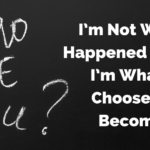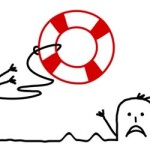 Do you have a list of things you “ought” to have said/not said or done/not done near the time of your loved one’s death? Everyone feels inadequate when a loved one is dying, but some of us just can’t seem to take ourselves off the hook.
Do you have a list of things you “ought” to have said/not said or done/not done near the time of your loved one’s death? Everyone feels inadequate when a loved one is dying, but some of us just can’t seem to take ourselves off the hook.
“Ought” Implies “Can.”
At least admit that your “ought” is a judgment, not a fact. Are you sure you are comfortable believing that you could have
- acted perfectly,
- known what you couldn’t have likely known, and
- controlled what you couldn’t have likely controlled:
- your loved one’s life choices and thought processes,
- the medical community, and
- life, in general?
The fact is you can only do what is in your power to do.
Could guilt be a cover?
Guilt is a safe intellectual concept that you carry in your head. If you remain preoccupied with guilt you postpone feeling abandoned, unloved, afraid and angry.
Heads up: Grief is never resolved until primary feelings are accepted and felt. Take some time to examine whether you are staying in your head so you don’t have to feel underlying raw emotional pain.
If you are truly stuck, you may want to contact a grief support group or grief and loss counselor to anchor your journey.
Copyright: Gaining Traction, Victoria Panagotacos 20014






























